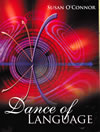Reading
 Decoding words and saying them aloud, we learn to read early in life to the glee of adults for whom this event holds great anticipation and joy.
It is of greater importance that we begin to understand and use the information we read for a variety of purposes. Reading ability evolves as we learn to access information on many levels,
from literal, knowledge level reading to reading between the lines: comparison and contrast, inference, drawing conclusions, evaluating, and making decisions about what is read.
What is clear about reading is that this developmental process requires an amassing of reading strategies for decoding meaning each step of the way.
Decoding words and saying them aloud, we learn to read early in life to the glee of adults for whom this event holds great anticipation and joy.
It is of greater importance that we begin to understand and use the information we read for a variety of purposes. Reading ability evolves as we learn to access information on many levels,
from literal, knowledge level reading to reading between the lines: comparison and contrast, inference, drawing conclusions, evaluating, and making decisions about what is read.
What is clear about reading is that this developmental process requires an amassing of reading strategies for decoding meaning each step of the way.
The allegory of Plato’s cave illuminates significant meaning for all people for whom success of any kind is important. We are imprisoned by our ignorance, but when we are liberated by knowledge and experience, we become free to continue learning, to surpass our former selves and advance toward excellence. Much of that experience and knowledge comes to us through reading.
For some inexplicable reason, many people believe that reading is a kind of magic that just happens at a certain age and that reading ability just automatically improves with age so that anyone can read much more difficult material. Then one day a teenager or young adult decides that he isn’t one of those people who like to read or are good at reading, or worse, there isn’t anything out there worth reading, and so she stops reading, except for what is only absolutely necessary to get on in life. To their great misfortune, this attitude about the learning process for reading is a monumentally destructive misunderstanding. There isn’t any magic to it. Rather, it is a process with essential steps and perhaps even a trick or two that can help students with even the most complicated comprehension skills. If you fall into the misunderstanding, reluctant reader, try these tips:
- Pre-reading really is helpful. Gaining information about why you are reading helps you to focus. Try searching for something in your closet when you have no idea what that item looks like. Same principle. How do you know what to look for before reading? Depending on the task, you will want to determine the point of reading and then break it down into smaller tasks. Is this an assignment with questions to focus on? Read them first before tackling the assignment. If the task is not one assigned by a teacher, ask yourself why you picked up this piece to read.
- Another pre-reading technique is to read the title, headline or subheading to get an idea of the topic you’re reading about. Then ask questions as you read: the who, what, when, where, and why of the selection.
- As you are reading anything at all, you make connections between the material and what you already know—your background, experiences, information you know that can help you understand the new information you are reading. Your prior knowledge helps you put what you are reading into a context that can help with your comprehension of what you read.
- It is a logical next step in the reading process to predict what will come next in your reading. You will be able to make predictions in part because of your previous experience with the information, and you apply those experiences to the new information, which you think may be similar.
- When you read a story or a play, it is natural to visualize the characters and their actions and dialogue, placing them in a setting almost as if you were watching a film unfold. If the writer has successfully described the elements in the story, it will be easy to picture what is happening.
- None of these tips work, however, if you can’t decode the words or you don’t know what the words you can pronounce actually mean. Three solutions to this problem can help: Use context clues to figure out the meaning of the word, or look it up in a dictionary, as it is used in the context of the sentence. Work to build your word knowledge every day by studying high frequency word lists in one of the many vocabulary building books currently on the market.

